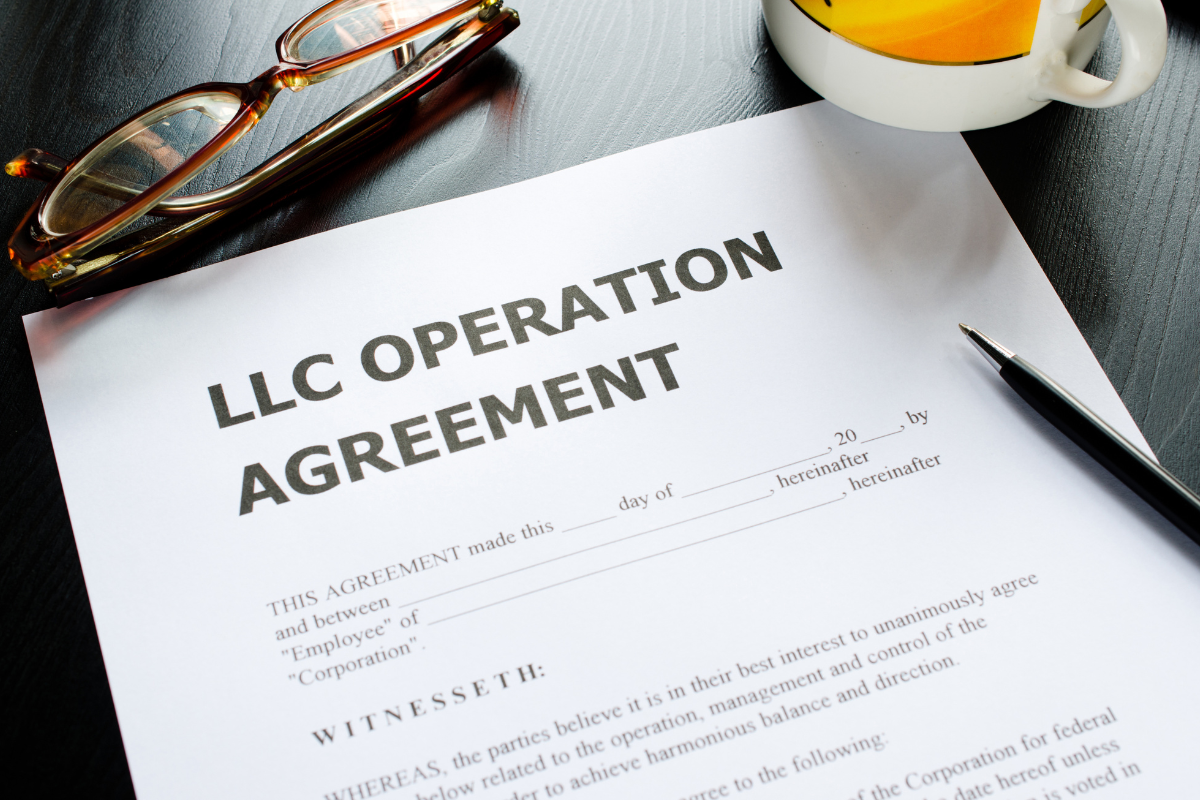Starting a Limited Liability Company (LLC) has become a popular startup structure in the US.
It gives you personal liability protection like a corporation but operates like a partnership. You get the tax perks and flexibility without all the rigid corporate regulations.
But don’t think forming an LLC is as easy as hammering an ‘Open for Business’ sign on the front lawn. It requires some strategic steps.
The process varies from state to state; how you structure an LLC in California may differ from Delaware. Luckily, this guide outlines the key steps you must take regardless of the state of formation:
1. Select A Name For You LLC
Picking a name is the first big step when starting an LLC. The name must have the phrase ‘Limited Liability Company’ or LLC because it’s a legal requirement. It must also be unique and available.
Brainstorm a list of potential names that describe what your business does. You can even use your own name or make a fun play on words.
But don’t get out of line. Once you have your list, check your state’s specific naming rules. For example, some states don’t allow certain words like ‘bank’ or ‘trust.’
You’ll also need to search your state’s business name database to ensure no other LLC uses it. The last thing you want is to print business cards and sign a lease to find out the name is taken.
Remember, you’ll use this name to run your business, including opening a non US resident LLC bank account and conducting marketing operations. Therefore, you’d want something that represents your ideologies and activities.

2. Appoint A Registered Agent
All Limited Liability Companies (LLCs) are required to appoint a registered agent. This entity, which can be either an individual or a business, handles the receipt of all official correspondence for the company.
This includes any legal notices or documents. It’s particularly important for non-residents to select a registered agent located within the state where their LLC is established.
Having a local agent ensures prompt receipt of important paperwork and facilitates efficient communication.
Additionally, professional registered agents are adept at managing compliance requirements, such as filing deadlines, thereby ensuring the smooth operation of your business.
3. File The Articles Of Organization
To make your LLC official, you must file Articles of Organization, also called Certificate of Organization, with your state. This forms the legal foundation for your business.
The Articles of Organization form requires basic info about your LLC, including:
- Your business name
- Your registered business address
- The registered agent you chose
- The names of the LLC members (owners)
You’ll then submit this form along with a filing fee, which varies by state. Once the state processes and accepts the Articles of Organization, your LLC exists legally.
4. Create An Operating Agreement
The next step after filing the Articles of Organization is creating an operating agreement. It lays out all the rules and details of how your LLC will run.
However, an operating agreement isn’t technically required by law in every state. But it’s something you’d want. Here’s why:
- Ownership: It spells out the ownership split and what percent of the business each member controls. This prevents fights down the road about ownership.
- Roles and responsibilities: It describes the different roles and responsibilities of each member. It’s wise to make that crystal clear.
- Profit and loss sharing ratio: It also outlines how you’ll divide profits and losses among members.
Basically, an operating agreement gets all the crucial decisions in writing, so there’s no confusion. It also keeps everything tidy if the LLC adds new members.
5. Obtain An Employer Identification Number
An EIN is a requirement for tax reporting purposes. You’ll need it to file taxes, open a bank account, pay bills, and apply for licenses and permits.
The good news is getting your EIN is free and easy. You can apply on the IRS website, mail, or fax. It usually only takes a few minutes to get your new EIN when you apply online.
6. Open A Non-Resident Business Bank Account
Once your LLC is official, one of the things you should do is open a non-resident business bank account.

Separating your business money from your personal funds is crucial. This is because it makes it easier to cover business expenses, file taxes, and pay your team on time.
To open the account, you’ll need to bring a few things to the bank:
- Your EIN
- A copy of your LLC’s Articles of Organization and Operating Agreement
- Valid identification
- Physical address in the US
- Business plan or description
- Initial deposit
Choose a bank that offers features your LLC needs, like online payments and accounting integration. This will make it easier to conduct business transactions.
7. Understand Ongoing Compliance Requirements
Maintaining an LLC requires meeting ongoing state requirements, such as paying state fees and filing annual reports. These requirements vary by state.
Failure to comply can result in fines, penalties, or even the dissolution of your LLC. Therefore, stay informed about your state’s specific requirements to ensure your LLC remains in good standing.
Conclusion
Forming an LLC takes planning but offers benefits like personal asset protection. But by following the steps discussed, you can establish your LLC and position your business for success.
Just remember to appoint an agent to help navigate the complexities of business law and taxation.